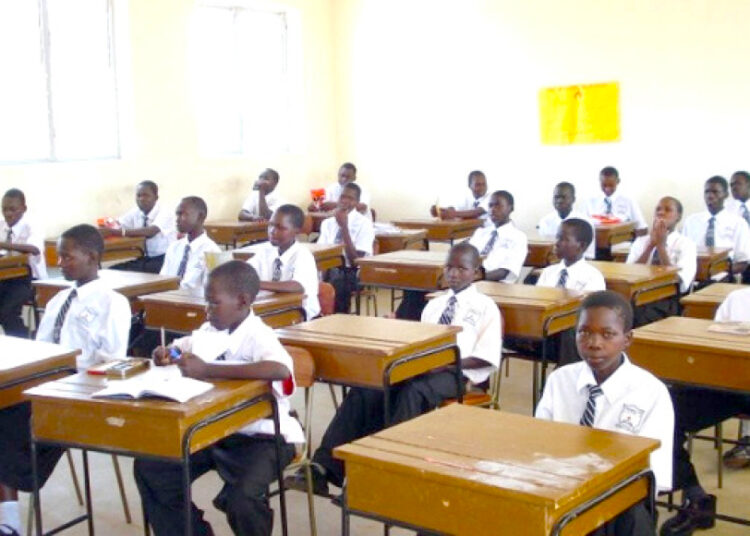Some top private secondary schools in Abuja have introduced a policy banning teachers from using mobile phones during school hours, from 8 am to 4 pm.
The move has sparked concerns from teachers, parents, and other stakeholders, with questions being raised about its impact on teaching, emergency communication, and professional autonomy of tutors.
While school managements argued that the decision aims to enhance discipline and improve teaching standards, critics say the policy raises concerns about practicality, fairness, potential overreach, and the risk of teachers being unavailable in emergencies.
Under the new rules, teachers are required to either surrender their phones to school authorities at the start of the school day or keep them switched off until the close of work. Violating the policy attracts disciplinary actions ranging from warnings to suspension.
One school official, who spoke on condition of anonymity for fear of losing his job, described the policy as both harsh and disrespectful.
He argued that while limiting phone usage in class may be justifiable, a complete ban throughout the school day ignores teachers’ professional needs and personal responsibilities.
“We are not children. You can’t ask an adult professional to stay disconnected for seven or eight hours without access to their phone. What if there’s an emergency at home? What if I need to coordinate with a colleague over classwork or access lesson materials I stored online?”
Some teachers also pointed out perceived double standards in the enforcement of the policy, noting that school administrators and non-teaching staff are often allowed to keep and use their phones during school hours.
Parents have also expressed mixed feelings. While some support the ban, citing the need for teachers to focus entirely on students during lessons, others view it as unnecessarily extreme.
Mrs. Hauwa Collins, a parent in Abuja voiced her discomfort; “I wouldn’t want to be unreachable by my child’s teacher if something urgent comes up. There has to be a balanced way to manage this without turning schools into detention camps for staff.”
While acknowledging the importance of minimising distractions, Education professionals have also warned that outright phone bans may do more harm than good, especially in an era where digital tools are central to teaching.
Titus Torough, an education consultant based in Abuja, emphasised that professional development, not control, should be the focus.
“Phones are now tools for instruction. Teachers use them to research, communicate, and organize classwork. Instead of banning, schools should provide guidelines for responsible use and ensure that phones are integrated into productive teaching practices.”
He further explained that many modern educational apps, teacher-parent platforms, and resource-sharing tools depend on smartphones. “If you ban phones, you’re also cutting off access to innovation,” he added.
LEADERSHIP checks further revealed that some schools have adopted a more balanced approach. In these institutions, teachers are permitted to use phones strictly for academic purposes and emergencies. Phones must remain on silent mode, and misuse is addressed through internal disciplinary procedures.
An Abuja-based teacher, Collins Shiaondo, who teaches in one of such schools, said the rules are strict but teachers are still given the right to phone in emergencies. “The school has strict laws against use of phones only while in class, but we can use our phones during break time. Banning the teachers from accessing the phones for over eight hours is totally unacceptable.
“I think in this modern age, school authorities should devise better means of stopping teachers from using phones. There was an incidence that happened few years back where the teacher was banned from using phone in a particular school in Abuja and the pregnant wife who was taken to the hospital required urgent operation.
“The doctor who requested that the husband must give consent couldn’t proceed with the operation. The woman eventually died only for the husband to power his phone after school close and was immediately alerted of his wife’s demise. Such laws are dangerous to the safety of teachers and the society at large.
The government need to urgently intervene and warn school implementing such laws,” he added.
Meanwhile, it is LEADERSHIP observed that there is currently no specific federal policy from Federal Ministry of Education (FME) that directly prohibits teachers from using mobile phones during school hours.
What exists are state-level directives, school-level rules, and broader recommendations not a national ban.
Although some Nigerian state governments and private schools have introduced policies limiting phone use, these usually focus on students, not teachers.
In the absence of a binding national law, best practices from international guidance have been suggested. Many parents and educationists recommended that teachers turn off or silence phones and keep them secured during instructional hours.
One of the parent, Ugwu Joseph said “Phones should only be used for teaching purposes, such as delivering multimedia content or accessing educational apps not for personal use echoing how some countries like Greece and the UK regulate teacher phone use.”











